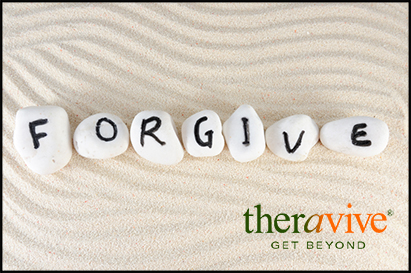 Psychological Definition of Unforgiveness
Psychological Definition of Unforgiveness
According to Worthington et al. (1999), unforgiveness can be defined psychologically as the emotional imbalance due to delayed response towards a transgressor. However, the expression (anger, hatred, frustration or violence) depends on the mental state of a person. Worthington and Scherer (2004) in the research study concluded that as unforgiveness is a type of stress response, it has a direct impact on the mental health and psychology of a person. The study also suggests that unforgiveness can be viewed as a state which a person is confined in a stressful state of mind.
Health Risks of Unforgiveness
According to McCullough (1998), unforgiveness triggers those stressors which force a person to think that people have harmed them in an ethically and morally wrong way. A person with such a mental state can take potentially harmfully steps, and in extreme cases people develop suicidal tendencies. There are a number of ways through which unforgiveness can damage mental health. Some of the most dangerous ones are:
1. Chronic Stress Response
Thoresen et al. (2000) in the research study concluded that when a person starts thinking that other people can harm/her, it gives rise to negative emotions. Apart from causing severe diseases like cardiovascular issues and high blood pressure, chronic stress can also cause brain hemorrhage. A person who lets out the negative feelings in the form of hated or violence is less prone to severe health issues that the person who cannot express his/her mental state. Long-term effects of chronic stress can also give rise to psychological disorders. Often persons suffering from chronic stress due to unforgiveness end up as anorexic or bulimic.
2. Short-Term Intense Responses
This is another common mental health problem that a number of people go through due to unforgiveness. According to the study of Bauer (2002), short-term unforgiveness provokes a person to respond intensely which ultimately impacts the social and cognitive behavior of a person. A person suffering from delayed expressions trauma cannot interact with other people. This impacts the communication skills, thinking abilities and decision making power of a person. Chi (2001) suggests that the negative effects of unforgiveness are similar to those of interpersonal mental trauma. Human brain when suffering for a trauma goes into hyperactive state which can cause hormonal imbalance.
3. Depression
Unaddressed and delayed negative emotions can cause a number of long-term mental health problems and depression is one of them. Depression is the most frequently encountered mental health issue, but the depression cased by unexpressed emotions can be more dangerous than other forms. It not only impacts the mental stability of a person but also damages his/her physical health. Common health issues associated with depression that can directly impact mental health are anxiety, short-temperament and sleeplessness. Moreover, a person suffering from unforgiveness depression cannot trust other people to share his/her feelings, which further triggers negative stressors and worsen the situation.
4. Paranoid Personality Disorder
According to Carroll (2009), a person suffers from paranoid personality disorder when his/her brain reacts to stressful situations in a hypertensive manner. A person cannot control his/her emotions and cannot form a firm opinion about any situation. Moreover, in later stages of the disorder, a person can also suffer from hallucinations during a stressful or negative situation. A person suffering from this order cannot trust other people and has no or zero self-control. Although the problem is considerably neglected in clinical psychology, people suffering from mental setbacks due to unforgiveness can probably suffer from paranoid personality disorder.
 Benefits of Forgiveness
Benefits of Forgiveness
According Gandgev (2009), there are a number of benefits of forgiveness that can help psychiatrists treat a mentally ill or disturbed person. Some of these benefits are:
Mental Stability- Forgiveness facilitates the process of recovery from a mental trauma. It is very important for the mental stability of a person to let out all the negative emotions and forgiveness considerably suppresses the negative stressors.
Social Functioning- Gandgev suggests that for proper social functioning it is very important that the person has self-control. However, patients suffering from depression due to unforgiveness have no self-control.
Can Medical Help and Therapies Reduce Health Risk?
According to Steward (2000), medical aid, counseling and therapies can effectively help a person recover from the mental trauma or chronic stress due to unforgiveness. This is the reason that clinical psychiatry now emphasizes on treatment through therapies for mental disorders caused due to unforgiveness. Modern research is also focusing in investigating negative effects of unforgiveness on mental health and psychologists are proposing solutions.
_________________________________________________________________________________________________________________________________
Carroll A. (2009). Are you looking at me? Understanding and managing paranoid personality disorder. Advances in Psychiatric Treatment.
Gandgev P. (2009). Forgiveness: A Note for Psychiatrists. Indian Journal of Psychiatry.
McCullough, M. E., Root, L. M., & Cohen, A. D. (2006). Writing about the benefits of an interpersonal transgression facilitates forgiveness. Journal of Consulting and Clinical Psychology, 74, 887–897.
Worthington, E. L., Jr., & Scherer, M. (2004). Forgiveness is an emotion-focused coping strategy
that can reduce health risks and promote health resilience: Theory, review, and hypoth-eses. Psychology and Health, 19, 385–405.
Worthington, E. L. Jr., & Wade, N. G. (1999). The psychology of unforgiveness and forgive-ness and implications for clinical practice. Journal of Social and Clinical Psychology, 18, 385–418
Christie Hunter is registered clinical counselor in British Columbia and co-founder of Theravive. She is a certified management accountant. She has a masters of arts in counseling psychology from Liberty University with specialty in marriage and family and a post-graduate specialty in trauma resolution. In 2007 she started Theravive with her husband in order to help make mental health care easily attainable and nonthreatening. She has a passion for gifted children and their education. You can reach Christie at 360-350-8627 or write her at christie - at - theravive.com.